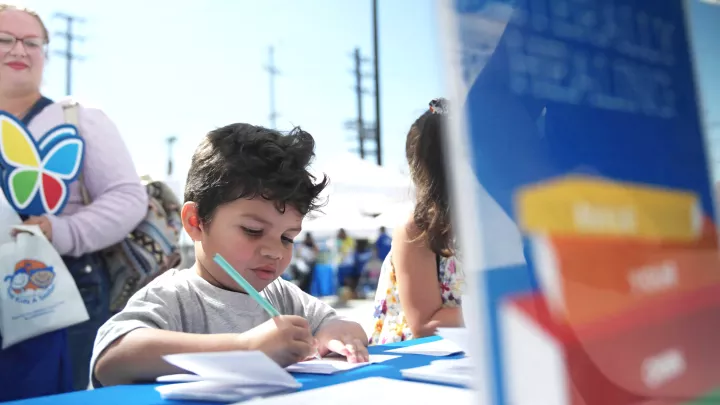How Families Can Prepare for Disasters
There are many things families can do to prepare for disasters. To help keep your family safe, you should:
- Pack a go-bag, in case you need to leave your home quickly.
- Keep a home disaster kit, in case you need to stay inside your house for a long period of time.
- Identify a meeting place that is not your home. This is important if your family becomes separated, cannot communicate with each other, and it is not safe to go home.
- Decide on an out-of-state friend or family member to be the single point of contact for your family. This is because after a disaster, it's often easier to call long distance because local cell towers may become overwhelmed.
Click below for a disaster preparedness activity that you can do with your entire family:
- Disaster Preparedness Activities for Your Family
- أنشطة عائلية للتأهب للكوارث (Arabic)
- Աղետներին նախապատրաստվելու միջոցառումներ ձեր ընտանիքի համար (Armenian)
- 家庭防灾准备活动 (Chinese)
- 가족을 위한 재난 대비 활동 (Korean)
- Actividades de preparación ante desastres para la familia (Spanish)
If You Need to Leave Your Home (Evacuate)
If a disaster such as a wildfire or earthquake happens and you need to leave your home quickly, make sure you have the following basic items and information for you and your children.
- Pack go-bags for each family member. Make sure to include everything you need:
- Extra diapers and wipes
- Blankets and extra clothing
- Appropriate food, including formula, jarred baby food or breast milk for infants and children (read about infant nutrition during a disaster.)
- Toys, books or other items to comfort
- Know evacuation routes and exits from your home. Rehearse getting out of your home quickly at least once a year.
- Keep your car's gas tank filled. If the power goes out, many gas stations may not be able to pump or sell fuel.
- Make a family reunification plan–make sure family members know where to meet if you cannot go back to your home.
If You Need to Stay Inside (Shelter in Place)
In situations like a severe weather storm or chemical spill, authorities may tell people to stay inside the home. If this happens, you will need to have supplies to take care of your family.
- Keep a disaster bin filled with essential survival items. This can include:
- Batteries
- Flashlights
- Blankets
- Changes of clothing
- Non-perishable foods
- Can openers
- Tool kit
- Axe and shovel
- Keep extra bottles of water or supplies to disinfect water, in case tap water becomes unsafe to drink.
- Know where the gas shut-off valve, water main valve, and circuit breaker/fuse box are for your home, and make sure you know how to open and close the valves and breakers.
- Keep important documents safe in a water- and fire-proof container.
Preparing for Disasters That Happen When You're at Work
If a disaster happens while you are at work, there may be more things to think about.
- Most companies have some type of emergency plan. Review your organization’s emergency preparedness manual.
- Know where the back-up systems of communication (emergency phones, pay phones) and power (red plugs, extension cords, flashlights) are in your work area.
- Make sure your team has an emergency call tree with accurate phone numbers and backup numbers for each employee.
- Participate in emergency drills. These help employees become familiar with their duties and can identify weaknesses in the facility’s planning.
- Keep a small personal emergency kit at work that may include:
- Comfortable shoes
- Change of clothes
- Small food items
- Personal medication and extra eyeglasses
- Small amount of money
- List of phone numbers of family and friends
- Plan for alternate care for children, dependent elders and pets in case you cannot get home.
For more information on how to keep your family prepared for a disaster, visit Ready.gov, or the Red Cross website.


